The fifth World Philanthropy Forum (WPF), co-hosted by Tsinghua University, the University of Hong Kong and the Chinese University of Hong Kong, opened recently at Tsinghua University in Beijing with the theme “Developing a Sustainable Philanthropy Ecosystem”.
At the opening ceremony, Zhang Chunxian, Vice Chairman of the Standing Committee of the National People’s Congress (NPC), delivered a keynote speech.
He noted that philanthropy originates from the universal human virtue of altruism and is a moral force for social justice. The love and goodwill of society and the policy incentives of the government are the two driving forces for the advancement of charity.
According to Zhang, the development of charity should be incorporated into the general pattern of modernizing the national governance system and governance capacity, insisting on a combination of strict control and generous love, and actively supporting, encouraging and promoting the healthy development of charity.
He also hoped that the representatives and distinguished guests would put forward their insights for establishing a vibrant, diversified and symbiotic global philanthropic ecology, unite to overcome difficulties, promote the high-level and high-quality development of world philanthropy, and make greater contributions to the building of a community of a shared future.
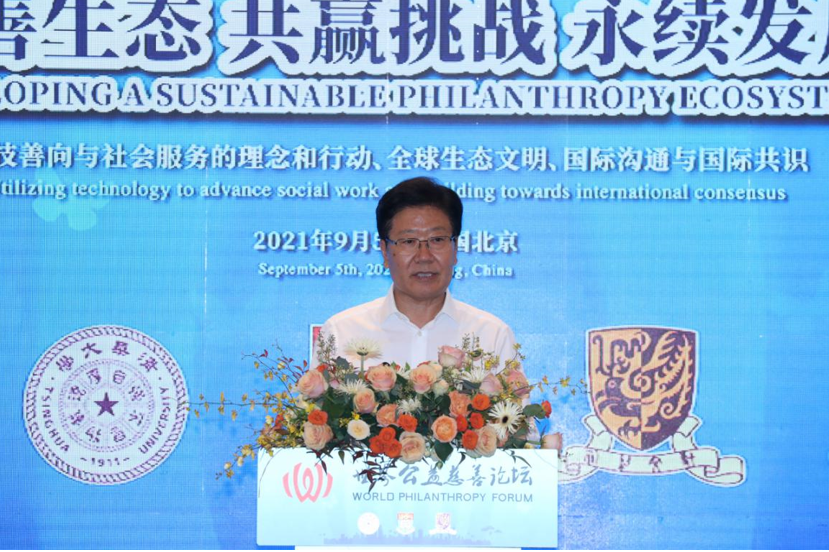
Zhang Chunxian delivers a keynote speech at the opening ceremony of the WPF at Tsinghua University in Beijing on Sept 5.
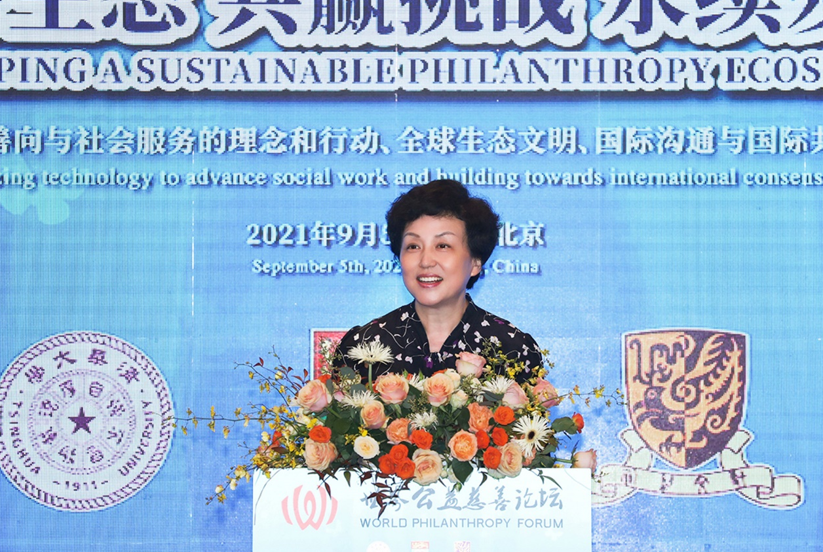
Chen Xu makes a speech at the event
After welcoming all the participants on behalf of the university, Chen Xu, Chairperson of Tsinghua University Council and Co-chairman of the WPF, said that under the special context of the international community calling for global collaboration to fight the COVID-19 epidemic, it was of profound significance to hold the philanthropy forum to inject new connotation to the interests, pursuit and values shared by human beings, to promote the development of charity and human civilization, and to help build the community of a shared future.
Chen said that Tsinghua would take the initiative to serve the modernization of the country and definitely make more valuable and meaningful achievements in philanthropy.
She expected that the forum would focus on major social and environmental issues at home and abroad, and continue to explore ways of effective participation and full sharing of social forces including public charity; systematically summarize the experience and practices of Chinese public charity in precise poverty alleviation and epidemic prevention and control; promote organizations and institutions to strengthen cooperation in public charity policies, talents and services; and improve the cooperation mechanism of all parties, so as to lay a solid foundation for the long-term healthy development of the forum.
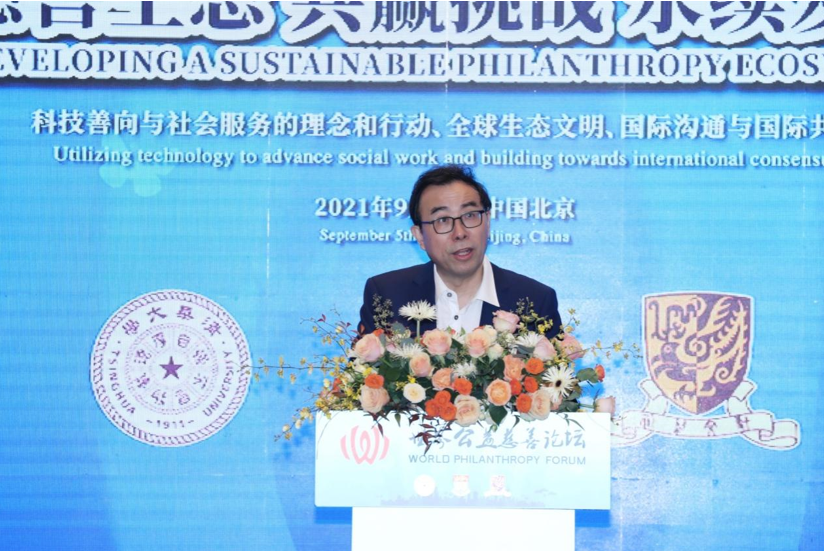
Peng Kaiping makes a speech
Peng Kaiping, Dean of the School of Social Sciences of Tsinghua University, acted as the opening moderator of the forum. In an interview with CCTV, he mentioned that strengthening the self-building of charitable organizations, and especially improving their professional and emergency response capacity, enhancing their mobilization and rescue capacity in major natural disasters and public health events, and vigorously developing charitable undertakings is one of the major inspirations given to humans by the pandemic, as well as an effective measure to face various risk challenges with ease, mobilize social strength, and promote overall social progress.
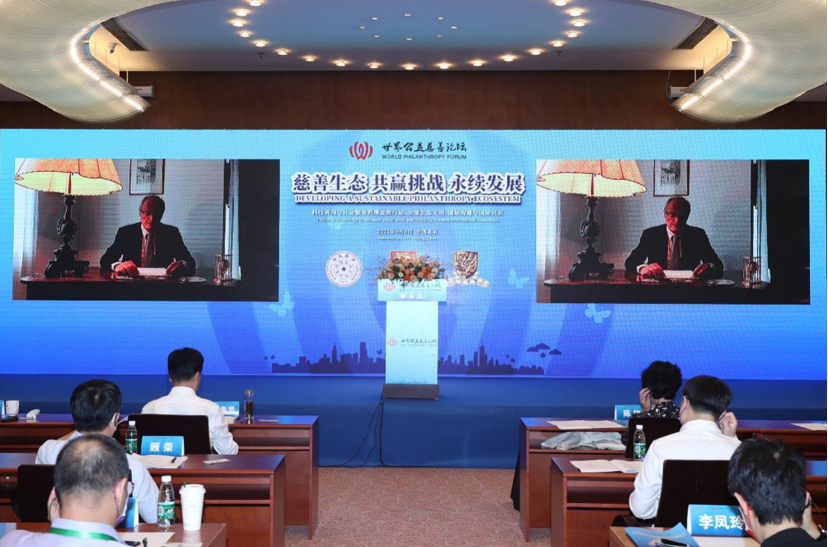
Peter Megyessy makes a keynote speech via a video link
Peter Megyessy, former prime minister of Hungary, and a consultant to the WPF, made a keynote speech entitled “The Global Economy and World Philanthropy in the Post-pandemic Era”.
According to him, the future of philanthropy has to be considered also on the basis of the present global political and economic environment. There will be huge property and income inequalities, as well as big geographical differences between countries, regions and continents. As is known, traditional economic and financial instruments are not efficient enough to balance the situation. That is why there will be a growing need for philanthropy.
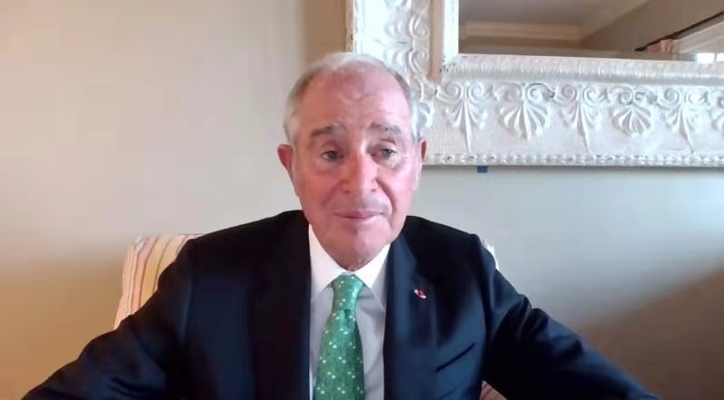
Stephen A. Schwarzman makes a keynote speech
Stephen A. Schwarzman, co-founder, Chairman and CEO of Blackstone, delivered a keynote speech entitled “Responsibilities and Duties for the Young”.
He said: “First, think about philanthropy being more than just about giving money; your personal skills, connections, time and energy are all equally valuable. Second, find areas that you are passionate about, look for problems that are not already being addressed, and think about how you or your organization can begin solving them. Third, make philanthropy a habit, even starting at an early age.”
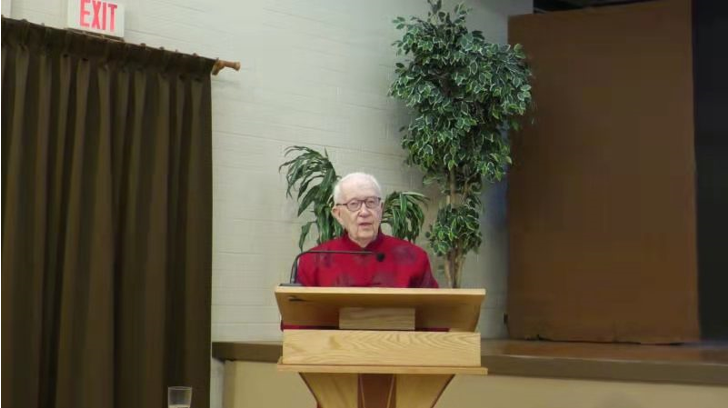
John B Cobb Jr Addresses the event
In his speech entitled ”the Era Needs Deep Reflection on Philanthropy”, John B Cobb Jr, a member of the American Academy of Arts and Sciences, said that if wealth was concentrated in too few hands, and wealth determines the quality of medical care people receive, real philanthropy might focus on improving the health care of the poor rather than enabling some companies to make more money.
If people in general and especially the poor are consuming more and more of the poisons used in agriculture, philanthropy might support efforts to produce food without poisons and make it available to those who most need it, he added.
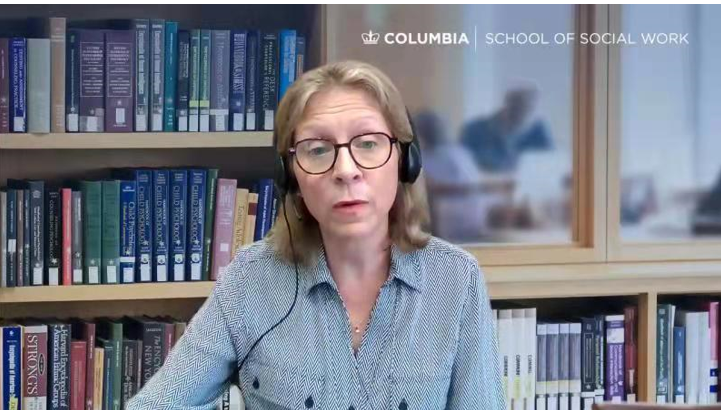
Melissa Begg makes a keynote speech
Melissa Begg, Dean of the Columbia School of Social Work, delivered a keynote speech entitled “Public Health and Social Work”. She said: “a recognition of the power of collective action can lead to profound changes in how we experience our life. Nothing will get better by itself; we have to be intentional and relentless in creating the world we want to live in.”

A group photo of the participants
Sept 5 is the “International Day of Charity”, which is also the “Charity Day of China” stipulated in the “Charity Law of the People's Republic of China”. The introduction and improvement of charity law is an important symbol of China’s social progress, so that China's public charity has entered a new era where there are laws to go by.
The forum focused on the topics of science and technology, social services, ecological civilization and international consensus, aiming to create a broad space for public charity and promote the professional development of the world's philanthropy and public welfare industry.
It invited professionals from government, enterprises, public charity organizations and higher education institutions of different countries and regions such as Asia, Europe, America, and Africa, to discuss together, build consensus and promote action.
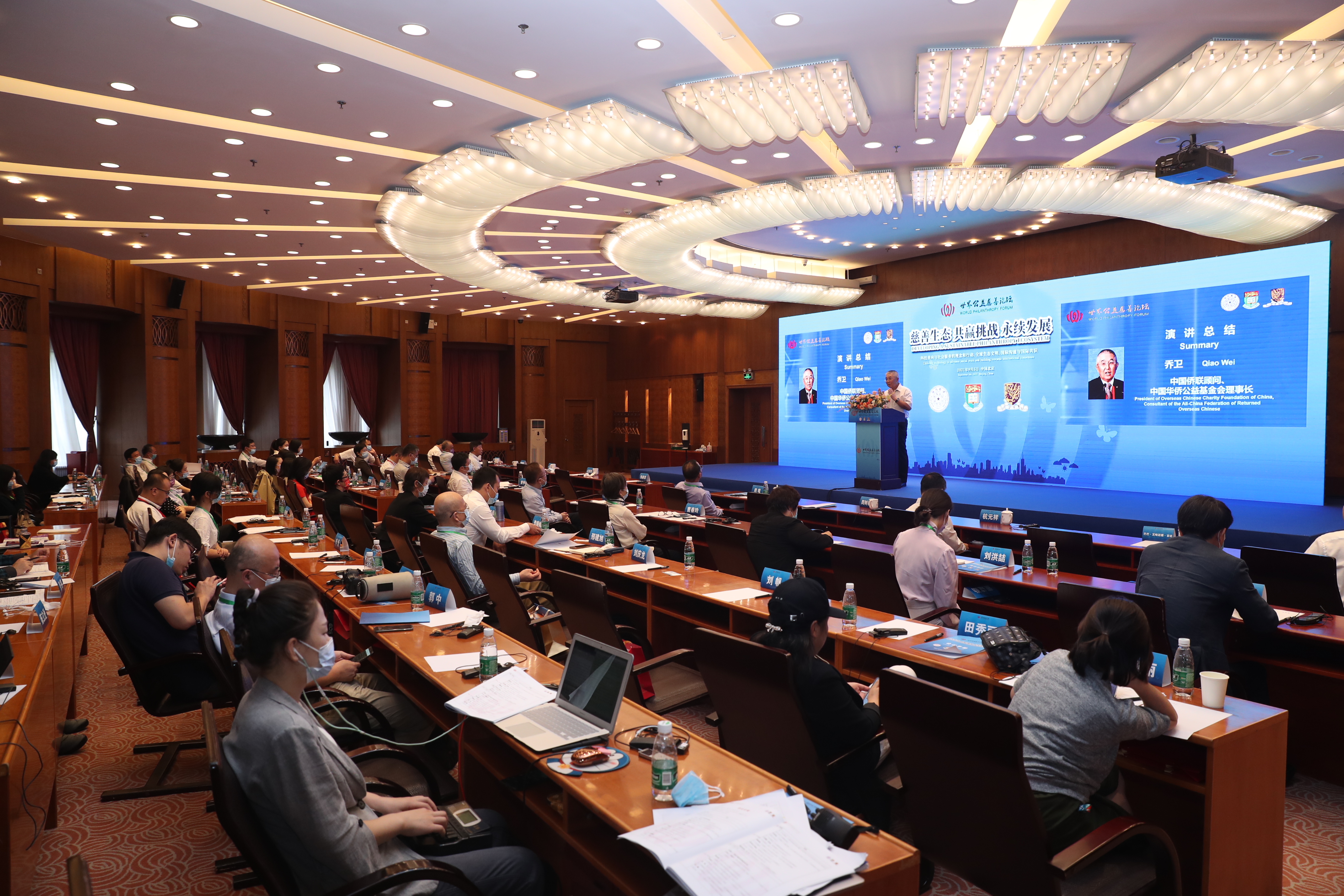
The forum is held at Tsinghua University in Beijing on Sept 5.
Launched in 2018, the WPF is co-sponsored by Tsinghua University, together with the Chinese People's Association for Friendship with Foreign Countries and the China Soong Ching Ling Foundation, and co-hosted by the University of Hong Kong and the Chinese University of Hong Kong, and held regularly every year on the UN International Day of Charity and Charity Day of China.
It is dedicated to sharing experience, academic exchange, policy advocacy and practicing the promotion of public charity on a global scale, to enhance people-to-people exchanges and morality, to promote global cooperation in public charity and social work, and to contribute to building a community of a shared future. At present, the forum has become a globally important platform for the exchange and progress of philanthropy and social services.